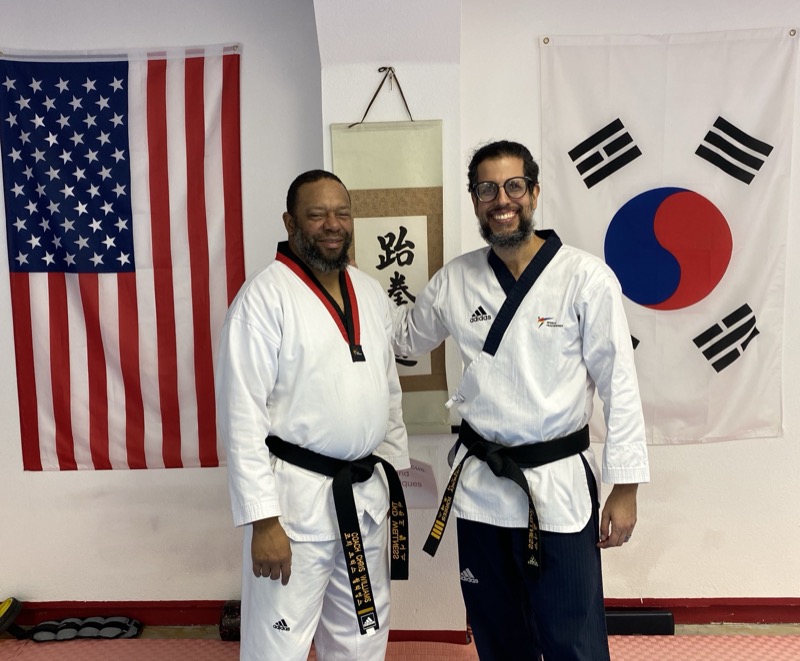
Independence Day is a time to celebrate freedom, resilience, and the pursuit of self-improvement. It serves as a poignant reminder of the courage and determination required to achieve independence, both as a nation and as individuals. For parents, this holiday is an opportunity to reflect on the values they wish to instill in their children. Taekwondo, a martial art that embodies discipline, strength, and self-reliance, offers a powerful means to teach these principles while building confidence and resilience in young learners.
The Essence of Independence Day
Independence Day is more than just a historical celebration. It represents the enduring values of freedom, personal growth, and community strength. It’s a time to honor those who have fought for our rights and to inspire the next generation to cultivate independence in their own lives. While festivities like parades and fireworks are central to the holiday, it is also a moment to reflect on how we can empower children to embrace self-determination and resilience.
The Role of Taekwondo in Developing Confidence and Strength
Taekwondo is much more than a physical discipline. Rooted in Korean tradition, it combines physical training with mental and emotional growth, making it a holistic approach to personal development. Here’s how Taekwondo aligns with the values of Independence Day by fostering confidence, discipline, and strength in children.
1. Building Physical Strength and Coordination
Taekwondo provides a full-body workout that engages the core, upper body, and lower body, enhancing overall physical fitness. Children develop:
- Cardiovascular health: Regular practice improves stamina and heart health.
- Flexibility and balance: Techniques like kicks and stances build flexibility and stability.
- Muscle strength and coordination: Drills and structured patterns (poomsae) enhance motor skills and strength.
These physical achievements give children a sense of accomplishment, encouraging active lifestyles and boosting self-esteem.
2. Cultivating Confidence Through Gradual Progression
Taekwondo’s belt system offers a clear progression of skills, allowing students to set and achieve goals incrementally. As children master new techniques and advance through the ranks, they develop a sense of pride and self-confidence. Key benefits include:
- Goal setting: The belt system teaches children to work steadily toward objectives.
- Celebrating milestones: Each new belt reinforces the value of perseverance.
- Building a growth mindset: Overcoming challenges teaches children that effort and practice lead to improvement.
This gradual progression fosters self-assurance, enabling children to tackle obstacles with courage both inside and outside the dojo.
3. Developing Discipline and Focus
Taekwondo requires students to adhere to a structured routine and follow instructions carefully, instilling discipline and focus. These qualities translate to other areas of life, including academics and personal responsibilities.
- Respect for authority: Bowing to instructors and adhering to class protocols emphasizes respect.
- Improved concentration: Learning techniques and forms requires sustained attention.
- Time management: Regular practice helps children prioritize and manage their schedules.
The discipline learned in Taekwondo promotes a strong work ethic, preparing children for future challenges.
4. Encouraging Respect and Teamwork
Although Taekwondo is an individual discipline, it fosters a strong sense of community and mutual respect among students. Key aspects include:
- Partnered drills and sparring: Practicing with peers teaches cooperation and communication.
- Camaraderie: Shared experiences create bonds and friendships.
- Empathy and inclusion: Respecting diverse abilities and perspectives is integral to Taekwondo culture.
By working together, children learn that success is not only personal but also collective.
The Impact of Independence and Confidence on Personal Development
Combining the principles celebrated on Independence Day with the teachings of Taekwondo equips children with tools for lifelong success. Here’s how:
1. Encouraging Independence Through Self-Defense
Learning self-defense techniques empowers children with the knowledge that they can protect themselves. This sense of security fosters independence and self-reliance.
- Autonomy: Knowing they can handle challenging situations reduces dependency on others.
- Confidence in new environments: The ability to defend themselves encourages children to explore and engage with the world.
2. Enhancing Emotional Strength and Resilience
Taekwondo teaches children to manage emotions like frustration and anxiety, building resilience over time.
- Handling setbacks: Overcoming challenges, such as perfecting a difficult move, teaches perseverance.
- Channeling emotions: Techniques like controlled breathing help manage stress and anger.
- Celebrating effort: Emphasizing growth over immediate success reinforces emotional resilience.
These lessons cultivate a balanced mindset that supports mental well-being.
How to Integrate Taekwondo into Your Child’s Routine
If Independence Day inspires you to introduce Taekwondo to your family, here are some tips:
- Start with a trial class: Many Taekwondo schools offer free or low-cost introductory classes. This helps gauge your child’s interest.
- Choose the right school: Look for qualified instructors who prioritize both skill development and personal growth.
- Set achievable goals: Work with your child to establish realistic objectives, such as earning their first belt.
- Celebrate progress: Recognize and reward milestones to keep your child motivated.
Conclusion
As we celebrate Independence Day, let’s honor its values by empowering the next generation with tools for confidence, discipline, and resilience. Taekwondo embodies these principles, offering children a dynamic way to build strength and independence both physically and mentally.
Encourage your child to embrace the journey of Taekwondo, and watch as they grow into confident, capable individuals ready to face life’s challenges with courage and determination.
Written by AI & Reviewed by Clinical Psychologist and Head Coach: Yoendry Torres, Psy.D.
Disclaimer: Please note that some blog posts may contain affiliate links, and TKD Wellness will earn a commission if you purchase through those links at no additional cost to you. We use all of the products listed and recommend them because they are companies or products that I have found helpful and trustworthy. Our website is supported by our users.